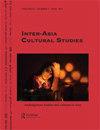冷战时期台湾与菲律宾的文化外交、艺术网络与非殖民化政治
IF 0.4
4区 社会学
Q4 ANTHROPOLOGY
引用次数: 0
摘要
摘要冷战期间,由于台湾与菲律宾在东亚地区的军事和地缘政治同盟关系,双方频繁发生文化交往。本文通过考察两国参加的艺术展览的政治和美学,以及艺术家个人之间的知识交流,从外交和个人层面探讨了这种文化联系。战后在菲律宾举办的第一届东南亚艺术大会暨大赛,展示了台湾在自由世界的文化外交;它还强调了后殖民时代东亚和东南亚殖民现代化的不同形象和新兴的民族身份。虽然台湾和菲律宾之间的文化联系是冷战时期地缘军事战略的产物,但在台湾-菲律宾外交关系结束后的冷战后期,艺术家个人积极维护跨地区友谊和艺术网络。这一区域内网络创造了一条知识传播的替代轨道,使菲律宾左翼民族主义著作在台湾戒严时代得以在台湾出版。此外,它还对台湾和菲律宾非殖民化倡议的政治话语和艺术实践提供了一个比较视角。本文章由计算机程序翻译,如有差异,请以英文原文为准。
Cultural diplomacy, artistic network, and the politics of decolonization between Taiwan and the Philippines in the Cold War era
ABSTRACT During the Cold War, cultural engagements frequently occurred between Taiwan and the Philippines due to their military and geopolitical alliance in East Asia. This essay explores this cultural linkage at both the diplomatic and individual levels by examining the politics and aesthetics of the art exhibitions both countries participated in as well as the intellectual encounters among individual artists. The First Southeast Asia Art Conference and Competition, a postwar art event held in the Philippines, demonstrated Taiwan’s cultural diplomacy in the Free World; it also highlighted the different figurations of colonial modernities and the emerging national identities developed in East and Southeast Asia in the postcolonial era. While the cultural linkage between Taiwan and the Philippines was a product of the geo-military strategy in the Cold War era, the translocal friendships and the artistic networks were actively maintained by the individual artists in the late Cold War years, after the Taiwan–Philippines diplomatic relation ended. This intra-regional network created an alternative trajectory of knowledge circulation that allowed Philippine leftist nationalist writings to be published in Taiwan in the latter’s martial law era. Furthermore, it provides a comparative perspective on the political discourses and artistic practices of decolonial initiatives in Taiwan and the Philippines.
求助全文
通过发布文献求助,成功后即可免费获取论文全文。
去求助
来源期刊

Inter-Asia Cultural Studies
Multiple-
CiteScore
0.90
自引率
20.00%
发文量
22
期刊介绍:
The cultural question is among the most important yet difficult subjects facing inter-Asia today. Throughout the 20th century, worldwide competition over capital, colonial history, and the Cold War has jeopardized interactions among cultures. Globalization of technology, regionalization of economy and the end of the Cold War have opened up a unique opportunity for cultural exchanges to take place. In response to global cultural changes, cultural studies has emerged internationally as an energetic field of scholarship. Inter-Asia Cultural Studies gives a long overdue voice, throughout the global intellectual community, to those concerned with inter-Asia processes.
 求助内容:
求助内容: 应助结果提醒方式:
应助结果提醒方式:


